Catheter care
£10.00 Excl. VATMaster the skill of catheter care to enhance patient health and minimise risks.
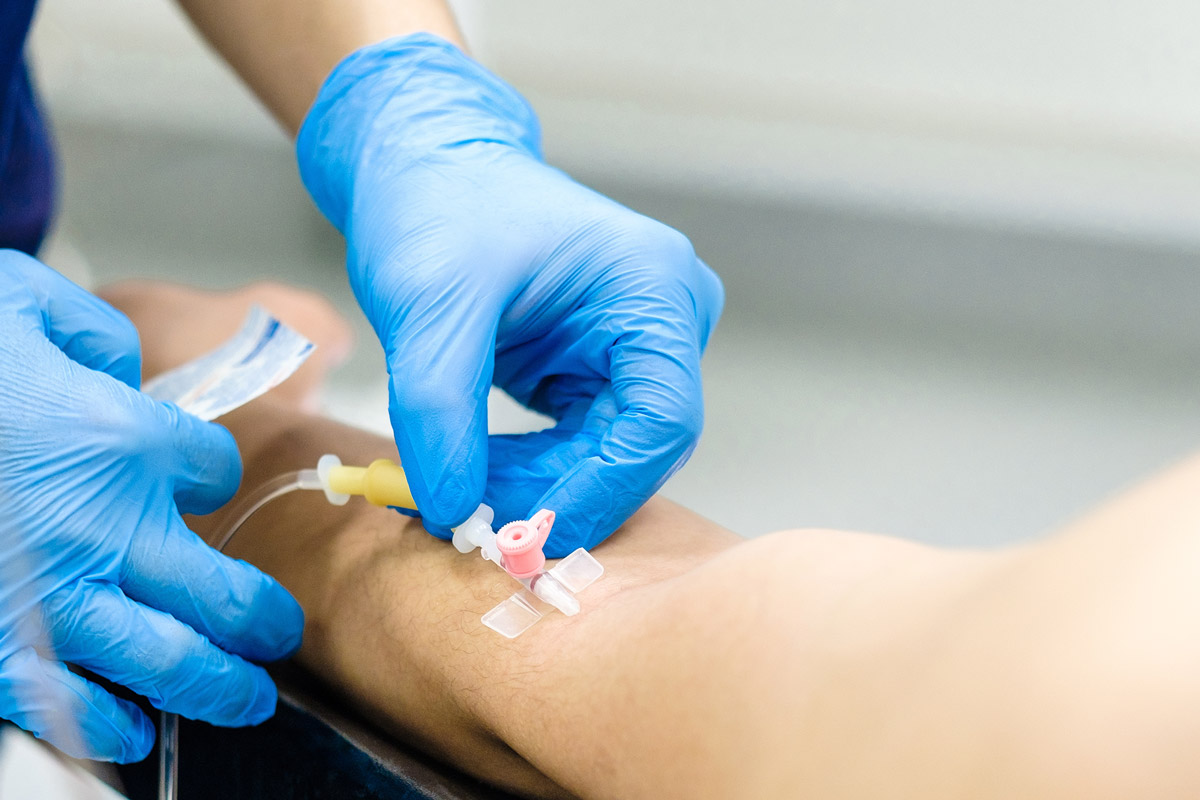
Compliance courses for professionals working in children’s social care.
Showing all 48 results

Master the skill of catheter care to enhance patient health and minimise risks.

In this awareness course we cover the basics of Dysphagia for all those who may be coming into contact with people experiencing it.

In this course we cover what continence is, what can affect it and how to effectively address challenges with incontinence.
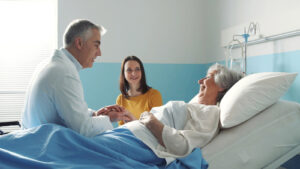
In this course, we will explore the physiology of the skin in relation to pressure care, and learn best practice pressure area care techniques.

By the end of this course, learners will be able to understand the barriers people with learning disabilities and/or autism might face in a health and social care setting and make adjustments to allow their needs to be met.
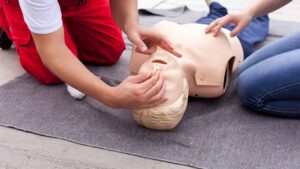
Have you ever found yourself in a life-threatening situation? Have you ever wished you had more skills to help someone in danger?
If you want to be able to approach daunting situations with confidence and use a defibrillator (AED), provide CPR, or stop someone from choking, then you’ll want to take this course. Basic life support training (BLS) saves lives and you could really make a lasting difference to someone.
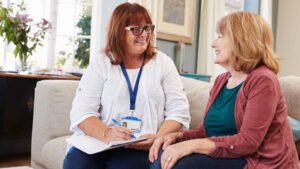
The Care Certificate was introduced in order to raise the standard of care of elderly and vulnerable people in our society. It set out a 15-standard programme of care training for care workers, replacing the Common Induction Standards (CIS) and the National Minimum Training Standards (NMTS).
In this training suite, you’ll get all the theoretical knowledge you need to underpin the practical demonstration elements of your care certificate standards training or social worker training.

Is your organisation currently undertaking Care Certificate training? If so, your assessors will need to be trained on how to effectively evaluate your employees against the 15 Care Certificate standards. This Skills for Care endorsed assessor training covers all the key topics.

The Deprivation of Liberty Act protects the most vulnerable individuals in hospitals and care homes. It plays an important role in preventing the unlawful deprivation of liberty occurring. The MCA DoLS (The Mental Capacity Act: Deprivation of Liberty Safeguards) framework offers safeguards for the people who most need it and principles of conduct for anyone working with vulnerable people. If you are in a care profession, it is crucial that you understand them.
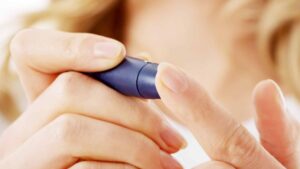
More than 3m people in the UK have been diagnosed with diabetes. Of these about 270,000 have type 2 diabetes and around 300,000 have type 1 diabetes. Just as importantly, approximately 850,000 people in the UK have undiagnosed type 2 diabetes.
Our diabetes online course will equip you with a greater understanding of the challenges around the condition and how it can be effectively managed.
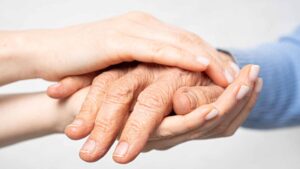
A duty of care is “A moral or legal obligation to ensure the safety or well-being of others”. It’s an obligation well understood by employers and parents – and in health and social care it’s of particular importance. This short course will prepare you for all the different factors you need to consider when you your health or social care role includes an explicit duty of care.

Over a million people in the UK have an eating disorder. This course looks at what eating disorders are, and who is likely to be affected.

Effective communication in healthcare is vital – patients need to be able to make important decisions about their care, and they also need the comfort and dignity that comes from the people involved in their care provision taking the time to communicate properly. When you’re dealing with potentially vulnerable or challenging individuals, it’s more important than ever.
This course gives you all that you need to build your understanding of what makes effective communication and how you can apply it to your work.

If you work with young people and families, you’ll know how important effective communication with children can be. Good communication builds trust and can make a real difference to how effectively services are delivered and their long-term success.
This course will help you sharpen your skills and deepen your knowledge around effective communication with children and families.

Emotional abuse of children is the most common form of abuse – and the effects can be just as damaging to the victim as physical violence. However, without visible evidence such as bruising and injury; or disclosure from the child or parent, it can be particularly difficult to identify the signs.
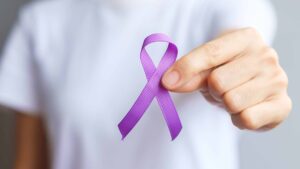
Do you know what to do if someone you work with or employ suffers an epileptic seizure? Would you be able to recognise an epileptic seizure? Did you know there are more than 40 different types – and what they look like can vary?
Epilepsy courses are a great way to get to grips with the basics; and this course gives an interesting overview of epilepsy and its effects, the way people with epilepsy must make adjustments to their lives and details the key considerations for dealing with someone suffering a seizure.

Workplace equality is a right for all employees and challenging it when it’s not in place is important. If you work in health and social care, you’re particularly likely to encounter people from a wide range of backgrounds and some of these people will need your support to promote adequate equality and inclusion. Cultural awareness training can help clarify the areas in which some people struggle in the workplace.

Female genital mutilation (FGM) has been a criminal offence in the UK since 1985. But there’s a growing issue around British children being taken abroad by UK nationals for FGM, something which was additionally outlawed in 2003. The NSPCC estimates there are around 137,000 women and girls affected by FGM in England and Wales.
This course covers everything relating to FGM over four informative modules.

Having a sufficient amount of fluids and good nutrition is crucial for maintaining health. If you’re involved in the care of vulnerable adults, you should be able to recognise when a person is not eating or drinking properly.
In this six-module course, you’ll develop a full understanding of the importance of proper fluids and nutrition to general health.

Use of the assessment framework provides evidence to help, guide and inform judgements about children’s welfare and safety from the first point of contact, through the processes of assessment, planning and review.

Gangs are intertwined with youth violence and criminality. It is essential we recognise the extent of the problem and understand how to safeguard our at-risk youth.

The importance of good recording, storage of information, and knowing when to share information are described using everyday scenarios in this two module overview course.
If you have a role or responsibility at work within a health or social care setting, this course is for you.

Hate crime can be extremely disturbing for victims and their communities. But how prevalent is hate crime and what does the law do to protect and support victims, as well as deal with perpetrators? You will learn about all this and more with our comprehensive hate crime awareness course.

In the workplace, everyone has a responsibility to minimise risks to the health and safety of both themselves and others.
This 11 module course covers the elements you need to know to work safely in your health or social care role.

Parental substance misuse, mental ill-health and domestic abuse can all have a huge impact on a child’s safety and wellbeing. These hidden harms can threaten a child’s feeling of security and create challenging long-term problems.
This course will help you learn ways to reduce the likelihood of a child in your care suffering this hidden harm.

How much do you know about the issues of honour-based violence and forced marriage? This abuse is often used as a means of control, with the cycle beginning when victims are children and continuing into adult life.
One of the biggest problems is that if the victims are not getting the right support from the authorities then they may feel unable to make a complaint.

If you’re working with adults who may be ill or vulnerable to infection then you need to be particularly vigilant in infection control. But why is infection control important?
NICE (The National Institute for Health and Care Excellence) estimates that 300,000 patients a year in England acquire a healthcare-associated infection as a result of care within the NHS.
Infection control in hospitals and care homes is therefore critical: it harms patients who are already vulnerable and costs healthcare institutions too.

In healthcare, we are responsible for collecting, using, storing, processing and deciding the purpose of processing personal data.
As the amount of data collected, created and stored continues to increase, the need to protect it is even more important.

Responsible information sharing is key to delivering better and more efficient services; coordinated around the needs of children, young people and families. It’s especially important in light of new data privacy regulations.
In this information sharing training course you’ll learn about the sharing process and when to impart information; and visit some likely scenarios.

Keeping good records is an essential part of a structured and safe approach to working with vulnerable adults, children, young people and their families.
Good records management not only demonstrates the practical application of your knowledge and skills, it provides evidence of your work activity and helps keep those in your care safe.
This course gives good record keeping guidance for anyone working in social care.

Lead Professionals play a key role for children and their families, as the single point of contact for coordinating provision of a range of services.
Learn about the role of a lead professional and the importance of the Continuum of Need in this short, informative course.

According to the NHS, more than 1.08 billion prescription items were dispensed overall in 2015, a 1.8 per cent increase on the previous year.
Effectively managing and safely handling this medication is crucial to the health and wellbeing of those who rely on it on a daily basis.

If you work in health and social care it’s important to have a good grounding in the key areas of mental health, dementia and learning disability. This course addresses each of these topics separately, along with presenting strategies that allow health professionals to help these individuals to live as they choose.

This course provides the learner with an understanding of Government Statutory Guidance on missing children protocol. It gives the learner the confidence to know what to do when a child or young person goes missing from care, what to do when they come back, and how to prevent repeat cases all the while supporting the child and their family.

Effective multi-agency working in health and social care depends on everyone concerned having a clear understanding of multi-agency initiatives (such as MASH and MARAC) and a good working knowledge of the legislation and guidance available.
If you’re working in a role that routinely demands multi-agency working, then this course will provide informative, useful guidance that will make your work easier.
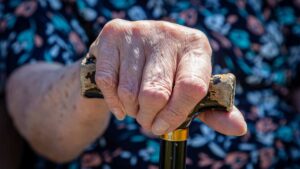
Privacy and dignity is something that we take for granted.
When you are caring for someone, however, it can be challenging to respect their privacy and dignity whilst supporting them with day to day activities.
In this course, we demonstrate how you can maintain privacy and dignity in a health and social care setting.

Private fostering is a crucial part of taking care of many young people in the UK. In this course, we’ll explore what private fostering means and the laws related to it.

Get a grip of the basic principles of safeguarding for adults with this short course aimed at health and social care professionals.
If you’re working in elderly protective services or just need a grounding in safeguarding adults procedures, this course will help you understand how to recognise and prevent abuse of vulnerable adults in a health or social care setting.

If you work in any public-facing role in a healthcare environment, it’s vital that you know how to spot the warning signs of abuse and neglect, particularly in children.
Based on content from the 2006 Safeguarding Children and Young People: roles and competences for healthcare Staff Directive, this course help you spot the signs of child mistreatment and neglect and enable to you be sure you’re raising concerns appropriately.

Do you work with children? Are you confident you can make safeguarding referrals for the children in your care? Do you need to brush up your child protection legislation knowledge?
This Safeguarding Children Level 1 and 2 course will give you a thorough and clear overview of modern child protection principles – a must-have for anyone working with young people.

If you work in a healthcare setting then it’s important to have a good awareness of child safety and safeguarding procedures. This engaging and informative child safety training course provides an ideal introduction.
Not only does it meet the national minimum training standards for Safeguarding Children at Level 1, it’s the perfect refresher for more experienced staff seeking prevention and management of child abuse online training.
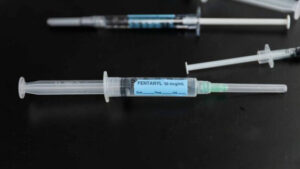
Substance misuse is a complex issue, affecting not only the individuals involved but their friends, families and the people they come into contact with.
Substance abuse can result in lowered educational outcomes, compromised health and danger to the public and affect not only the user but the people around them too.

An interactive and informative course to help you understand your rights, responsibilities and working relationships.
Ideal for anyone who is new to healthcare, adult social care, or who is providing direct care.
And the quiz, videos and flowcharts make the course easy, engaging and enjoyable.

This course explores various types of challenging behaviour seen across different age ranges – from early years children through to adolescents.
You will learn the typical root causes of disengaged, disruptive and unacceptable behaviours – both observable and hidden – and learn how to recognise some common triggers.
And you will feel equipped to respond to and manage unwanted behaviours after learning about the behaviour modification techniques and methods set out in this course.

There are many theories and ideas for how children grow and develop into adults. In this course we take a look at some of the most prominent and see how they can help us interact with children in our daily lives.

Understanding the background behind violence and violence reduction, including how experiences (e.g. ACEs) can impact and increase violence.

Working in a person centred way means, at its heart, thinking about the patient as more than a bundle of needs. A patient has values and principles.
They will also have intensely personal approaches – things which they love and things which annoy them. And they will have immediate needs for comfort which may go beyond the medical care pathway.
Thinking about those personal aspects is a tried-and-tested way to minimise pain and discomfort of the people in your care.

If you’re planning to further your career in health and social care, some upskilling from time to time might be required. Having a personal development plan (PDP) in place allows you to identify where you want to be and how you can achieve it.
This course uses case studies, personal development plan examples and videos to show you how to set workplace goals, expand your core skills and discover what you can gain from supervision and feedback.
It’s the difference between just going to work each day – and having a career plan which could see you go places!
End of content
End of content
Let us know what course you’re interested in and we’ll get in touch if it’s released!
We use cookies to ensure the best experience on our website. Find out more on our privacy and cookie policy.
No products in the basket.